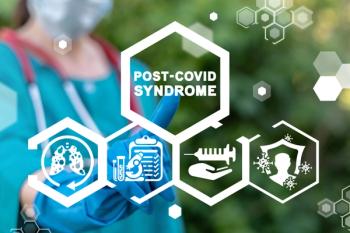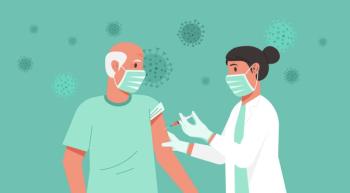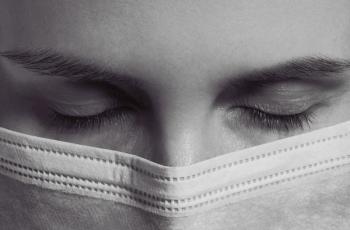
- Vol 38, Issue 8
COVID-19 Brings Anosmia to the Attention of Psychiatrists
Loss of smell can be devastating for patients. How can psychiatrists deal with the associated psychological effects?
Loss of the sense of smell—anosmia—can be devastating. Without smell, patients describe feelings of emptiness, isolation, and emotional distress. Given that anosmia is a common first symptom of COVID-19 and a long-term sequela for as many as 10% of patients who have had COVID-19– related anosmia, psychiatrists need to be familiar with this symptom in order to identify and manage the associated psychological effects.
Prior to the current pandemic, anosmia and hyposmia (decreased sense of smell) received little attention in the popular press or in the non–ear, nose, and throat (ENT) medical literature.However, disturbances in the sense of smell have become a widespread focus of concern now that anosmia has emerged as a possible first symptom—and sometimes the only symptom—of infection with the SARS-CoV-2 virus.
For most individuals who have a COVID-19–related loss of smell, the deficits are short-lived. But for those individuals who do not fully recover, the neuropsychiatric consequences can bedebilitating. Pleasures of eating are lost when one cannot detect the complex scents of food. Atmospheric odors disappear: the smells of the kitchen and garden, the gym, the sea.
The pandemic-related increase in the prevalence of anosmia has thrown its debilitating effects on mood and quality of life into sharp relief and presents an opportunity for psychiatrists to help.
A Brief History Lesson
The SARS-CoV-2 virus was first reported in December 2019, although the association between anosmia and this viral infection initially was not made. Then, in late March 2020,
During this early stage of the pandemic, individuals across the globe did not qualify for COVID-19 testing if their only symptom was anosmia; however, in countries where testing waswidespread, patients who tested positive for COVID-19 often had anosmia, and frequently anosmia was their first symptom. By April 2020, the Centers for Disease Control and Prevention had added sudden loss of smell and/or taste to the diagnostic criteria for COVID-19. Both subjective and objective evidence for
It is now known that abrupt loss of smell may be an early, and possibly the only, symptom of SARS-CoV-2 virus infection. While anecdotal reports of anosmia abound, scientific studies of outcome are limited. Published research to date indicates that approximately 25% of individuals continue to have disturbances in their sense of smell for
Pathophysiology
Researchers have considered various
For individuals with a
Smell and Taste
The sense of smell is neurologically a function of cranial nerve I and distinct from the neurological basis of taste, which is a function of cranial nerves VII, IX, and X. The subjective experience of taste, however, is extremely complex and may be altered with changes in sense of smell. Taste involves the basic sensations of sweet, sour, salty, bitter, and umami in addition to the somatosensory experiences of temperature, touch, pressure, and pain (spiciness) (
The Etiologies
Before the current pandemic, about 3% of the adult population aged 40 years or older and up to 22% of adults aged more than 60 years were
Psychological Experiences
When there is a sudden loss of the ability to smell, patients are startled by how important scents are to their daily life experience. This sudden alteration in one’s experience of the environment is unsettling and often deeply emotionally distressing. Even before this pandemic, researchers had documented the negative effects that anosmia has on mood,
Since the pandemic, newspapers and magazines have published essays by individuals who have
Some of the articles focused on individuals who depended on the sense of smell for work: chefs, firefighters, and perfumers.
The loss of smell sensations also affected individuals in ways that are difficult to define: “I feel alien from myself... It’s also kind of a loneliness in the world. Like a part of me is missing, as I can no longer smell and experience the emotions of everyday basic living”16 And this: “
In Comprehensive Psychiatry, Stefano Pallanti, MD, PhD, reported
Although smell is arguably the least appreciated of our senses, it is extraordinarily fundamental. The sense of smell is neurologically (and, therefore, experientially) involved in memoryformation, emotional processing, and social behavior.
Oliver Sacks, MD, quoted a patient who
Sense of smell?...I never gave it a thought. … But when I lost it—it was like being struck blind. Life lost a lot of its savour—one doesn’t realize how much “savour” is smell. You smell people, you smell books, you smell the city, you smell spring—maybe not consciously, but as a rich unconscious background to everything else. My whole world was suddenly radically poorer.
Over time, as neurological functioning returns to normal, some individuals may experience distorted sensations of odorants (parosmia) or hallucinatory smells (phantosmias). Often these sensations are repellent and
However, the most unbearable is tap water. Showering, rinsing dishes, brushing my teeth, washing my face, and many more daily encounters are now repulsive and unbearable. Living in a world where tap water smells putrid has been one of the hardest things I’ve ever gone through.
My sweat acquired an acrid rotting-veggie–like fetid smell—swamp-like, but acidic and sharp.
Treatments and Resources
Of paramount importance is the psychiatrist’s role in listening to patients, gaining an understanding of anosmia’s effects on their quality of life. While anosmia may be an acute or chroniccondition, in either case, managing related health problems and maximizing quality of life are key goals of treatment.
In addressing the patient’s health problems, psychiatrists should first clarify the anosmia etiology, then identify and treat any comorbid psychiatric conditions, such as anxiety and depression. Anosmia may exacerbate an already existing mental health disorder. It is also important to determine whether a patient has been able to maintain good nutrition, hydration, and stable weight.13
Other health-related issues relate to personal hygiene and guarding against breath and body odor—with important social implications. Changes in relationships and intimacy can result from anosmia because of the complex relationship linking scents and social bonding. While a lack of awareness of one’s body odor can lead to poor hygiene and interfere with personal relationships, an inability to detect a partner’s scent can also negatively influence a feeling of attraction.
Like our senses of vision and hearing, our sense of smell serves not only to bring pleasure from pleasant smells and taste, but also to protect us from danger. Anosmia can make one unaware of the presence of dangerous inhalants like smoke, natural gas, and harsh cleaning ingredients. Spoiled food can go undetected, be consumed, and lead to illness. Thus, part of counseling an individual about the management of anosmia should also include advice about prevention of injury and illness. Recommendations may include installing smoke and natural gas detectors, regular maintenance to gas appliances, and dating food when opened to anticipate spoilage. Also, asking others to smell for noxious odors of any kind can be helpful.
Psychiatrists might wish to refer patients for consultation for help in managing the consequences of anosmia. If an individual’s occupation is at risk due to loss of ability to detect scents, career counseling may be useful. Individual, couples, or family therapy might be helpful, with an emphasis on education regarding anosmia and its effect on close relationships.
Smell training is the one treatment approach that directly addresses anosmia. Smell training aims to enhance the natural process of recovery by a program of consistently sniffing and concentrating on a small sample of scents multiple times a day over a period of months. The scents may be purchased as a kit, or a set of samples can be homemade.
Referrals to otolaryngologists who specialize in anosmia may be appropriate, especially for those with severe symptoms, or if there is uncertainty about the underlying cause. Many hospital-based otolaryngology departments have clinics that specialize in patient care for disturbances of smell, some of which offer smell training.
The Global Consortium for Chemosensory Research was founded in response to the outbreak of COVID-19–related anosmia. Its website has become a hub for researchers and is an easy way for patients who are interested to participate in research.
Other resources include the book Navigating Smell and Taste Disorders, which was published in 2010 as part of the Neurology Now book series.20 Although it was written before the currentpandemic, this book is nonetheless useful for individuals with COVID-19–related disturbances in smell and taste. Written for a general audience, it includes numerous recipes that were developed to emphasize aspects of the food experience to enhance the pleasure of eating for those with disturbances in the experience of taste. Nutritionists also may be able to advise patients on how to modify food preparation and seasoning to emphasize aspects of taste that do not rely on smell.
Several websites by nonprofit organizations offer support to those suffering with anosmia. Fifth Sense and AbScent are charities in the United Kingdom aimed at helping those with anosmia. They have advice about smell training, as well as community forums and Facebook groups, ranging from general support groups to those with a more specific focus, such as COVID-19–related anosmia or parosmia/phantosmia. These online resources make it possible for patients to share their experience of loss with others while also obtaining advice on how to cope with symptoms.
Conclusions
Before the
It is important for practitioners to understand the full spectrum of smell-related disturbances so they can be maximally helpful to patients. In some cases, anosmia or parosmia might be contributing to the psychiatric presentation. Psychiatrists need to be familiar with what is known about the natural course of COVID-19–related anosmia, approaches to ensuring safety and facilitating recovery, and how to help patients to find resources.
Perhaps most importantly, psychiatrists need to appreciate the depth of emotional disturbance that a loss of smell brings and the destabilization that ensues when one’s world suddenly lacks an important dimension; this is especially true for patients who might already have eating disorders or difficulties with feeling safe in the world. Along with practical advice, psychiatrists might facilitate the articulation of this complex experience. We also can offer empathy and validation to patients.
(This article has been updated to correctly attribute the quotes from reference No. 16--Ed.)
Dr Schildkrout is an assistant professor of psychiatry at Harvard Medical School in the Department of Psychiatry at Brigham and Women’s Hospital; she is the author of several books and a blog. Dr Lauterbach is an adjunct assistant professor at the University of Maryland School of Medicine and is the director of The Concussion Clinic at Sheppard Pratt. Dr MacGillivray is an assistant professor at the University of Toronto and a staff psychiatrist at the University Health Network. Dr Raj is a neuropsychiatrist in Wellesley, Massachusetts; she also serves on the Harvard Medical School faculty and on staff at Brigham and Women’s Hospital.
References
1. Coelho DH, Reiter ER, Budd SG, et al.
2. Croy I, Nordin S, Hummel T.
3. Hopkins C, Kumar N. Loss of sense of smell as marker of COVID-19 infection. ENT UK/Royal College of Surgeons of England. 2020. Accessed June 1, 2021.
4. Sedaghat AR, Gengler I, Speth MM.
5. Printza A, Katotomichelakis M, Valsamidis K, et al.
6. Parente-Arias P, Barreira-Fernandez P, Quintana-Sanjuas A, Patiño-Castiñeira B.
7. Johns Hopkins University & Medicine: Coronavirus Resource Center. Accessed June 1, 2021.
8. Mastrangelo A, Bonato M, Cinque P.
9. Meng X, Deng Y, Dai Z, Meng Z.
10. Marshall M.
11. Boesveldt S, Postma EM, Boak D, et al.
12. Kollndorfer K, Reichert JL, Brückler B, et al.
13. Toller SV.
14. Comstock L. A world without scent. The Atlantic. September 12, 2015. Accessed June 1, 2021.
15. Camuto R, Harans J. What’s a sommelier to do when they lose their sense of smell? Wine Spectator. March 1, 2021. Accessed June 1, 2021.
16. Burges Watson DL; Campbell M, Hopkins C, Smith B, Kelly C, Deary V. Altered Smell and Taste: anosmia, parosmia and the long impact of Covid-19. Accessed August 30, 2021. Plos One (accepted for publication). Preprint available at
17. Pallanti S.
18. Sacks OW.
19. Parosmia: “The smells and tastes we still miss, long after Covid.” BBC News. February 6, 2021. Accessed June 1, 2021.
20. DeVere R, Calvert M. Navigating Smell and Taste Disorders. Demos Health; 2010. ❒
Articles in this issue
over 4 years ago
The Epitome of Humanityover 4 years ago
Strategies for Successful Medical Practicesover 4 years ago
Medication Decisions for Women of Childbearing Potentialover 4 years ago
Diagnosing and Treating Psychotic Disorders in Late Lifeover 4 years ago
Why Married Men Live Longerover 4 years ago
Fibromyalgia: What It Is and How to Treat Itover 4 years ago
I Had to Useover 4 years ago
Cannabis ConfusionNewsletter
Receive trusted psychiatric news, expert analysis, and clinical insights — subscribe today to support your practice and your patients.







